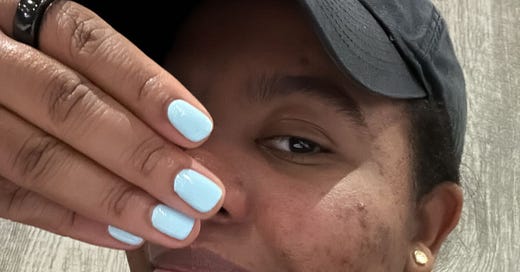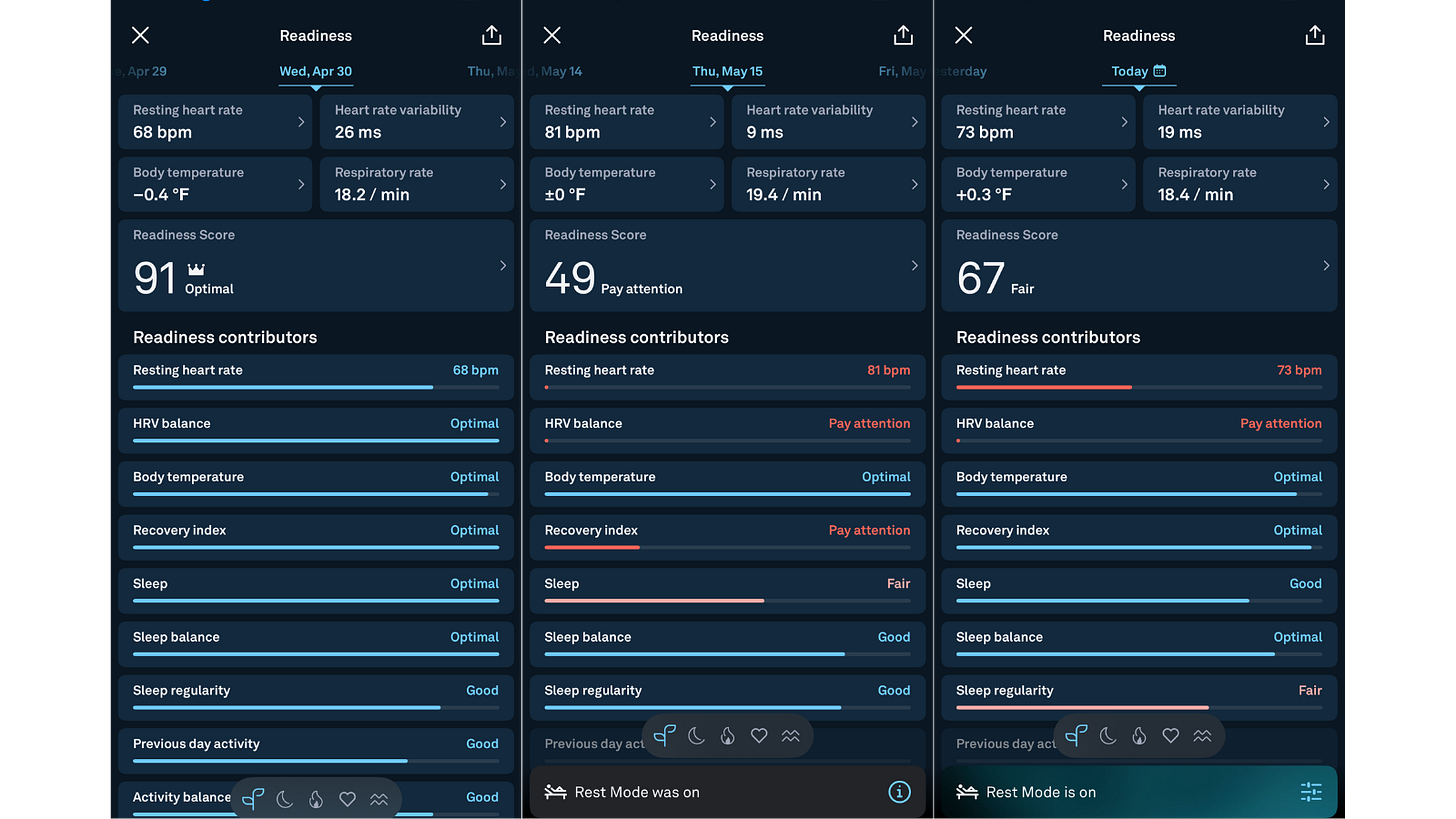Let’s Talk About Why I Love My Oura Ring
A comprehensive answer to one of the questions I’m asked most frequently.
Editor’s Note: Hi, I was sick last week, so I didn’t publish!
I wrote a story for FiveThirtyEight a few years ago about my disordered relationship with fitness and health optimization. I was an anxious young woman chasing “the perfect body” through constant ring-closing and an obsessive need to scroll through my health data. So, naturally, I was skeptical when Oura sent me a ring as PR back in 2022 after I wrote that story. Initially, I wasn’t sure if wearing it was a good idea, but I was taken by the ring’s minimalist design. It’s a sleek, unobtrusive piece of “jewelry” that quietly tracks various biomarkers without constantly buzzing or flashing notifications—a much-needed reprieve from my watch.
I figured, what the hell? A ring can’t make me more anxious than a beeping, buzzing watch does.
It’s been three years, and the chill aesthetics are secondary to why I love my ring. My wellness protocols—things like aiming for 8,000+ daily steps, eating at least 30 grams of protein per meal, and practicing mindfulness consistently—have been refined and validated by Oura’s continuous feedback loop of biometric data. For instance, Oura clearly shows the benefits of my consistent protein and fiber-rich meals through steadier energy levels and improved sleep stability overnight, which directly translates into the app as higher readiness scores and into my life as more energy and less brain fog. Of course, not all data feels good to review, like the undeniable negative impact of alcohol on my body. Even small amounts significantly raise my resting heart rate, reduce sleep quality, and decrease my readiness scores—and I feel that in my body.
Before we get too deep here, though, I’ve gotta say: You don’t need an Oura Ring or any biometric tracker. This post isn’t an ad. I like to think of it as a comprehensive answer to one of my frequently asked questions. I also have to acknowledge that, for some folks, the biometric data and “scoring” your well-being can fuel anxiety, which is what happened to me when I first bought my Apple Watch.
Okay, now let’s get deep.
I Know How Well I’m Sleeping
One of the first significant insights the Oura Ring offered was into my sleep patterns. Before Oura, sleep was something I thought I prioritized. With the ring, I’ve discovered why I feel groggy some days and high-energy on others, due to seeing how much deep sleep and REM sleep I’m getting, along with my nightly latency. Ideally, people fall asleep within 10 to 20 minutes of getting into bed, which shows they’re getting adequate sleep. Anything shorter than 10 minutes could be a sign of sleep debt, and anything longer than 20 minutes could be a sign of insomnia, which can be caused by anxiety, stress, and other factors.
Keep reading with a 7-day free trial
Subscribe to Healthy Futures to keep reading this post and get 7 days of free access to the full post archives.






